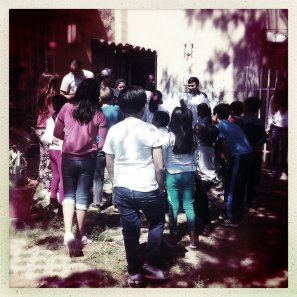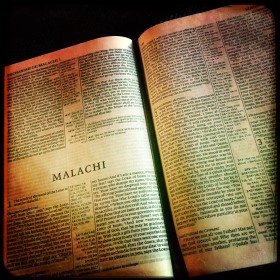The Day of the Dead, Coco, and the Bible
The Hallowe’en/Days of the Dead celebrations are in full swing here in Mexico. And immigration and media are bringing the celebrations to the world, like never before.
In 2015, the James Bond movie Spectre opened with a huge Day of the Dead parade in Mexico City – a parade that didn’t exist until the movie came out. Now the parade is a new tradition, bringing the customs and beliefs into the open for Mexicans and tourists alike.
In 2017, Coco from Pixar/Disney is bringing Day of the Dead traditions to the children – and adults – of the world. With music, colour and humour, and much that is beautiful about Mexico and its traditions, something dangerous will be smuggled into local theatres.
I’ve had some time to think about these traditions, and to hear the perspectives of my Mexican friends (by the way, if you need an introduction, check this post – Days of the Dead (information to check out)). The beliefs connected with the celebration today are a mix of pagan, Roman Catholic, and secular ideas.
 What can the Bible tell us about the beliefs that surround the Days of the Dead? Certainly it’s not wrong to remember our ancestors, and to recognize our connection to them. But should we give offerings to the dead? Should we try to communicate with them? Should we bow before the offerings and welcome spirits into our homes? Are the dead really on a journey through the underworld? How should we view death? How should we seek to conquer it – or should we embrace it?
What can the Bible tell us about the beliefs that surround the Days of the Dead? Certainly it’s not wrong to remember our ancestors, and to recognize our connection to them. But should we give offerings to the dead? Should we try to communicate with them? Should we bow before the offerings and welcome spirits into our homes? Are the dead really on a journey through the underworld? How should we view death? How should we seek to conquer it – or should we embrace it?
Here are some of the thoughts I’ve been sharing on my blog in Spanish. Maybe if you’re talking to your kids about these traditions, this will be a help.
- Do our dead relatives come back to visit us? No. The Bible teaches the death is a permanent separation from life on earth (until the resurrection) (Hebrews 9:27; John 5:28-29). David knew that his dead son would never return to him (2 Samuel 12:23). Job also knew that the dead did not return to their houses (Job 7:8-10). The resurrection of the dead is a future event, when our bodies will be raised. Unbelievers will face judgement on that day, but believers will enjoy eternal life, with no more death. (1 Corinthians 15:42; John 5:28-29)
- Should we communicate with the dead? No. Deuteronomy 18:9-12 tells us that consulting the dead was a serious sin for all nations. The prophet Isaiah also warns us about looking for help from the dead (Isaiah 8:19). It’s the Holy Spirit who guides and comforts us. He can use living people, and even the example of those who have passed away. But we should never try to communicate with the dead (John 15:26).
- Are the dead on a journey? The Bible teaches that we die once, and then face judgement. The dead are not on a journey to Heaven. They are with Christ, or awaiting condemnation. (Hebrews 9:27; 2 Peter 2:9) Jesus once spoke of a “great chasm” between those under judgement and those in paradise. There is no possibility of redemption after death. The Bible teaches that we will be judged by our works done in our bodies. You should look for forgiveness in Jesus Christ now, before it’s too late. (2 Corinthians 5:10; 2 Corinthians 5:20-21; Isaiah 55:6-7)
- Should we celebrate death? The Bible teaches us that death is something bad, a result of sin. But there is Someone who came back from the dead victorious, who will finally destroy death itself. We celebrate the Sinless Conqueror, Jesus Christ! He is the resurrection and the life. There is no other escape, and no other hope. (1 Corinthians 15:20-26; John 11:25; John 14:6) It is certainly appropriate to cry and mourn when someone we love dies. But as believers in Jesus Christ, we have hope even when we are grieving.
- How is death conquered? The only way that we can have victory over death is to be united with the Author of Life. When we come to Him in repentance and faith, we discover that He is a Perfect Saviour. (Acts 3:14-15; Romans 8:2; John 14:6) If you’re not following the Saviour, I have to ask. Do you know that God offers you forgiveness in Jesus, His Son? Turn your back on sin and come to Him today. Don’t rely on your own works, or on any other person, alive or dead, to save you. Put all of your trust in the Perfect Saviour. (Hebrews 7:25; Acts 4:11-12)
It’s hard to talk about death. Death is a terrible thing. But it doesn’t help to sanitize it and bring in non-Biblical beliefs to make it “easier”. The truth is not a Disney movie. God’s Word shows sin and death as realistically horrible, but it also glorifies our Conquering Saviour.




 Basically, the idea is to read through one complete book every day for a month. In other words, if you’re reading Malachi (that’s my book for December), the idea is to read the whole book once on the 1st, once on the 2nd, once on the 3rd – so that you’ve read it about 30 times over the course of the month.
Basically, the idea is to read through one complete book every day for a month. In other words, if you’re reading Malachi (that’s my book for December), the idea is to read the whole book once on the 1st, once on the 2nd, once on the 3rd – so that you’ve read it about 30 times over the course of the month.